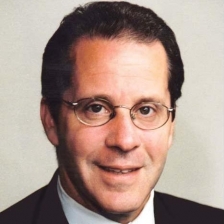
Gene Sperling
It is a testament to the rank incompetence of the Trump general election campaign that the most troubling stories of ethical shadiness from within the Clinton camp are coming from non-partisan to left-leaning sources. One would think a campaign built around pseudo-populism could make a lot of hay with the fact that one of Clinton’s principal economic advisors took hundreds of thousands of dollars while working in the White House in the form of sweetheart loans from a Biglaw buddy with business before the government just so the advisor could maintain his elite lifestyle.
But such an on-point criticism might detract from veiled assassination threats and getting in a hissy fit with old Hogan lawyer Khizr Khan. Jesus, the Trump campaign is literally the gang that can’t shoot straight, which is even more reason no one should lose sleep over his “Second Amendment people” line.
While Trump’s been wasting everyone’s time, ProPublica scoured public filings and wrote an article on Obama’s former chief economic advisor and current Clinton advisor, Gene Sperling, borrowing huge sums of money from WilmerHale partner Howard Shapiro while Sperling worked in the White House:
So in 2011, Sperling borrowed between $100,000 and $250,000 from Shapiro at 5 percent, a rate that appears to be well below the interest banks charged at the time for comparable loans. Sperling listed his borrowing on his financial disclosure forms.
In each of the next two years, Sperling went to Shapiro again, taking out two more loans that brought his debt to a total of between $300,000 and $600,000. (The forms require disclosure of a range, not specific figures.) The loans are unsecured. Sperling consolidated earlier loans from Shapiro, one made in 2006 and the 2011 loan, into the later ones.
Whether this constitutes a severe ethical problem is a matter of dispute among experts. Government lawyers approved of the loans at the time, proof that Sperling was entirely above-board and acting in good faith. Still, others disagree with those lawyers’ conclusions:
Craig Holman, a government ethics specialist of Public Citizen, said that the transactions appear to be at odds with federal ethics rules. Because the loans were at below-market rates, Holman said, Sperling received a financial benefit akin to a gift. Federal rules bar executive branch employees from accepting gifts from “prohibited sources,’’ defined as anyone with business before the federal government. There can be exemptions for personal friendship, but Holman said such gifts should be barred because of the conflicts of interest they pose.
“I have a hard time seeing how such a major law firm would not have any business pending before White House,” Holman said. “This would appear to me to violate ethics rules. I don’t see any way around it,” he says.

Why Some Firms Are Leading The Market With Generative AI
A culture of innovation with strategic AI like Lexis+ AI is revolutionizing law firms by boosting efficiency and deepening client relationships.
For his part, Sperling says he was never involved in matters directly involving WilmerHale, but the indirect roles, while potentially entirely appropriate, create the appearance of potential conflict. For example, Sperling oversaw patent reform at the White House, and the 2011 patent reform law included an amendment that saved WilmerHale from a potential $214 million malpractice payment. Sperling says he had no involvement with that specific bill.
To argue that Sperling may have done nothing wrong under existing ethical rules is one thing, but the tack taken by some Sperling apologists reveals how utterly tone-deaf the conventional Democratic talking points are. Matt Yglesias tweeted:
This seems like a bad rap on @GeneBSperling to me. A loan, repaid, with interest, from a long-time friend? Come on.
Because living within your means is for the proles!
Honestly, the cavalier response this story elicits from Beltway media types is so much more disconcerting than any close ethical calls. To say that Sperling paid Shapiro back misses the point entirely. And to excuse this because the two were friends is even more gobsmackingly off base. The problem is that the people in charge of telling Americans to live within their means are out there using their elite contacts to flout the constraints of their own wages.
Oh, Sperling needed a few hundred thousand dollars to stay in his $2 million townhouse in Georgetown so his kids could finish school? You know, there’s a lot of people who would have killed back in 2009 to get a few thousand dollars to stay in their homes for their kids. But they don’t swim in high-powered professional waters with friends willing to dole out big bucks because they know the revolving door will take over and it’ll only take a couple of speeches worth more than most Americans make in three years to pay it all back. So those poor folks got the foreclosure hook and a stern lecture for “buying more home than they could afford” while Sperling and his beloved townhouse got to elide that problem by virtue of his professional reputation.
It’s a shame that the U.S. doesn’t pay its public servants more competitive wages. It’s a drawback that tends to limit the pool of potential advisors to those with the financial wherewithal to take a massive haircut on their earnings for several years. But more troubling than consigning America to aristocratic rule is opening it up to an insular class of professional elites who use the revolving door to finance their brief interludes of public service at the risk of creating the appearance of impropriety, undermining public confidence in the system as a whole. That should be a big deal.
But instead we won’t hear anything more about this because neither party wants to have a serious discussion about the incestuous web of D.C. There are a lot of townhouses to save.
While in the White House, Economist Received Personal Loans From Top Washington Lawyer [ProPublica]
Joe Patrice is an editor at Above the Law and co-host of Thinking Like A Lawyer. Feel free to email any tips, questions, or comments. Follow him on Twitter if you’re interested in law, politics, and a healthy dose of college sports news.
